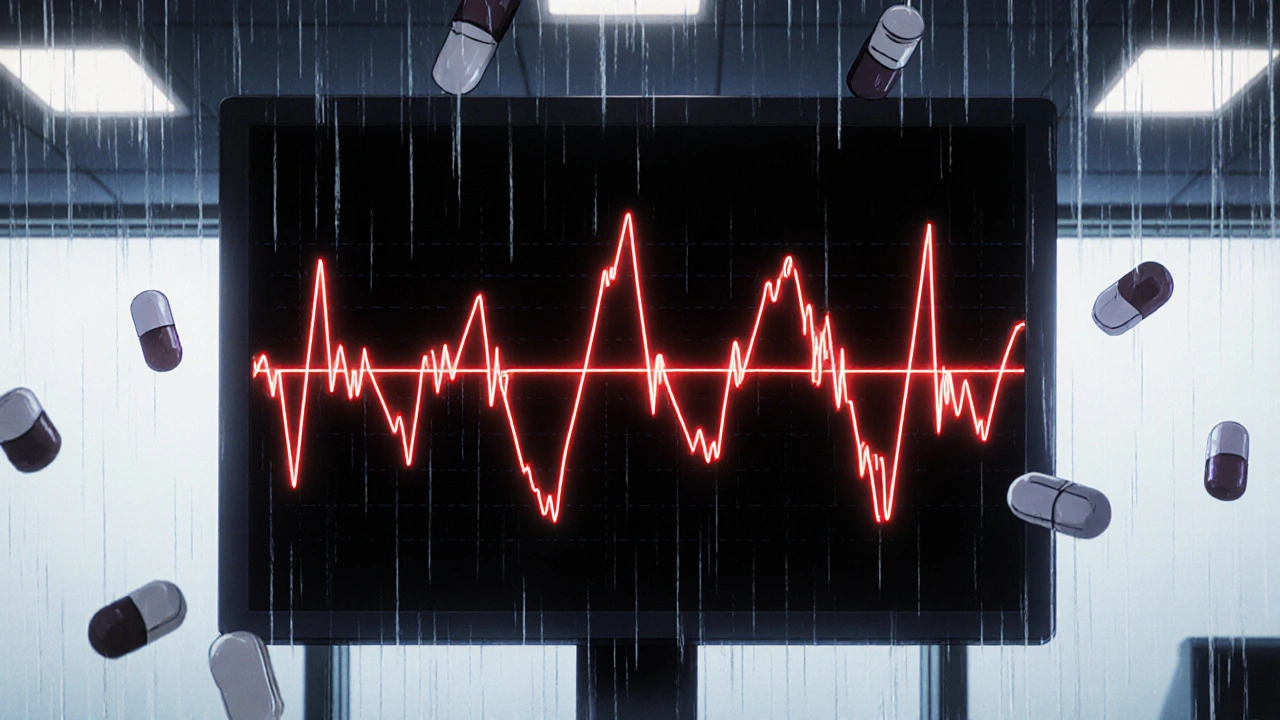Torsades de Pointes: Causes, Risks, and Medications That Can Trigger It
When your heart’s electrical system gets disrupted, it can start beating in a wild, twisting pattern called Torsades de Pointes, a life-threatening type of irregular heartbeat that often occurs in people with prolonged QT intervals. Also known as torsades, it’s not just a random flutter—it’s a medical emergency that can lead to fainting, seizures, or sudden death if not treated fast. This rhythm doesn’t happen out of nowhere. It’s usually tied to something deeper, like an imbalance in your body’s electrolytes, a genetic condition called long QT syndrome, a heart condition that delays the heart’s electrical recharge cycle, making it prone to dangerous rhythms, or—more commonly—a medication you’re taking.
Many drugs you might not think of as risky can stretch out your heart’s QT interval. Antidepressants like citalopram, antibiotics like moxifloxacin, anti-nausea meds like ondansetron, and even some heart pills like sotalol or quinidine can trigger it. People with kidney or liver problems are at higher risk because their bodies can’t clear these drugs properly. Women, older adults, and those with low potassium or magnesium are also more vulnerable. It’s not about taking one pill—it’s about the combo. A person on multiple QT-prolonging drugs, with low magnesium, and a history of heart disease? That’s a perfect storm.
What you’ll find in the posts below isn’t just theory. These are real cases, real meds, and real advice from people who’ve been there. You’ll see how common side effects like nausea from GLP-1 drugs or gout flares from blood pressure meds can hide deeper risks. You’ll learn how antibiotics can mess with your gut and your heart rhythm indirectly, how SSRIs might cause more than just emotional blunting, and why even something as simple as a laxative or eye drop can have ripple effects. This isn’t about scaring you—it’s about helping you spot the hidden connections between the pills you take and your heart’s rhythm. If you’ve ever wondered why your doctor asked about every single medication you’re on, this is why.
Torsades de Pointes from QT-Prolonging Medications: How to Recognize and Prevent This Life-Threatening Reaction
Torsades de Pointes is a life-threatening heart rhythm triggered by common medications that prolong the QT interval. Learn how to recognize the warning signs, which drugs are most dangerous, and how to prevent this preventable emergency.

